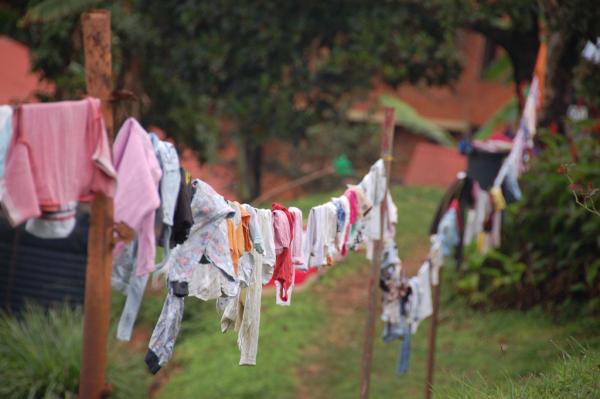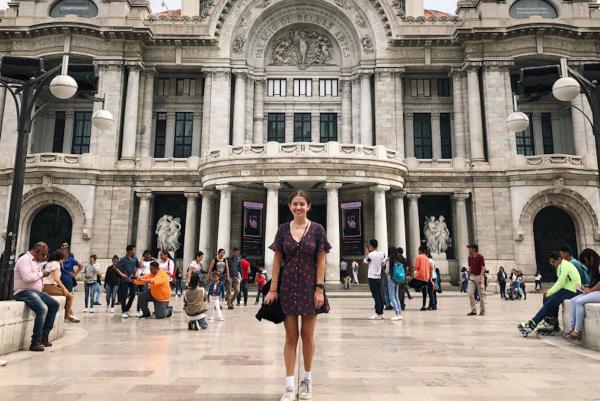The November day dawned crisp and cool in the province of Aceh, Indonesia. I was returning from my morning walk outside the hillside village of Saree, where I was doing some PhD research. Saree overlooks the Indian Ocean, tucked in the cleavage between two dormant volcanoes pleasantly referred to as Mr. and Mrs. Mountain.
That morning, I was tired, even a little irritable. I'd had a run-in with a local rebel commander, my colleagues kept changing their plans, my skin was sunburnt, my right arm was numb from brushing against a poisonous shrub, and I'd woken up covered with insects.
As I walked, a farmer called after me from his cornfield. Folks here are extroverts: he probably just wanted to say hello. I waved, smiled, continued. He appeared to me as the classic, non-descript peasant: conical hat, aged before his time, few teeth. But this guy was insistent. He caught up to me and pulled on my arm.
I couldn't understand much of what he was saying. He pulled out his wallet. Strange, I thought, the Acehnese are not beggars. He removed a tattered piece of paper—a thrice photocopied picture of two guys sitting on a couch in a suburban basement. The guys were Western, with black hair, and were playing guitars. On the other side was a scribbled address in Edinburgh, with no name.
What did he want? Did he just want to show me this photo of his friends? Maybe some tsunami relief workers from Scotland gave it to him. Maybe it came with the wallet.
We stood there. I tried to explain how nice it was, but I do not know every Westerner personally, Looking sad, the farmer watched me continue towards the village.
Then, I snapped out of it.
I went back to him, asked for the paper, and wrote the address in the back of my novel. I promised to take care of things, which pleased him.
I strode back to the village, puzzled by the encounter. On an old postcard from British American Tobacco Indonesia I copied the Edinburgh address and wrote: “I do not know you, but here’s a postcard.” I described what happened, apologized for the craziness if this was the wrong address, and asked the recipient to mail me in Vancouver to explain how the farmer got this address and who the guys in the photo are.
In Vancouver, over Christmas, a package arrived and the story took an unexpected turn. A family lawyer in Edinburgh was writing on behalf of Aidah M. Said McKenzie, an elderly Acehnese woman who had lived in Scotland for several decades. She had family in Aceh, and had kept in touch with them through two cousins in Banda. But on December 26, Banda was levelled. Aidah lost all contact with her family, unsure who survived and who did not. She went to journalists, NGOs, and lawyers to help her find her family, but nobody could. She gave up—and then she received my postcard.
The lawyer's package included a dozen photocopied pictures of Aidah’s family, mostly undated. I stayed up late that night organizing the photos. Who was who? When were they taken? Are the guys playing guitar her sons? They did look part Asian. How did Aidah come to marry a Scottish man and settle in Edinburgh? And who was the farmer in the cornfield?
In mid-January, I arrived back in Saree. That evening, my good friend and village fixer Pak Bahagia showed up, accompanied by the farmer. The farmer gave me a warm handshake. Again, he opened his wallet and out came the photo. This time, I had friends to translate.
The guys playing guitar in the photo are Aidah’s sons. The farmer, Johan, is Aidah’s nephew, the son of her brother Yakop. The cousin who used to relay communications with Aidah died in the tsunami. Johan did not write to Aidah because, and here he looked to the ground, he is illiterate.
Relieving the tension, Johan took out a tobacco pouch and rolled a monster spliff, laughing at my friends smoking small, manufactured cigarettes. As I broke out some Kraft Dinner, Johan told me all about Aidah, who apparently followed her uncle to Bangkok in the 1950s. Many of Aidah’s nieces and nephews live in Batee, an area on the north coast which was not hit by the tsunami, and he could help me find them.
The next day, we went to Johan’s house to meet his wife, kids and grandkids. My friends and I drafted a letter to Aidah explaining everything. We wrote it in English and Acehnese, and mailed it immediately, promising to e-mail her a number of photos as soon as possible.
It's all too easy to see those waving, staring, reaching at us as part of the scenery. They are not.
Over the next week or so, I visited as many of Aidah’s relatives as possible, taking photos, exchanging contact information, and constructing a family tree. Ibu Aidah Mackenzie had a number of relatives who are alive and well, and she would be in contact with them shortly.
One of Johan’s daughters told me what happened from their end. Johan saw me walk by every morning, and he kept saying: “I’m going to tell him.” But the family laughed at Johan, telling him I would not understand and I’d think he was some crazy villager.
The thing is, Johan’s family was right. My first reaction was that he was a crazy peasant, but the guy whom I had written off knew precisely what he was doing. When we're travelling in developing countries, it's too easy to see those waving, staring, reaching at us, as part of the scenery, as anonymous. They are not. These are real people with their own complex stories.
Read more about Shane Joshua Barter's work in Indonesia.
Add this article to your reading list



